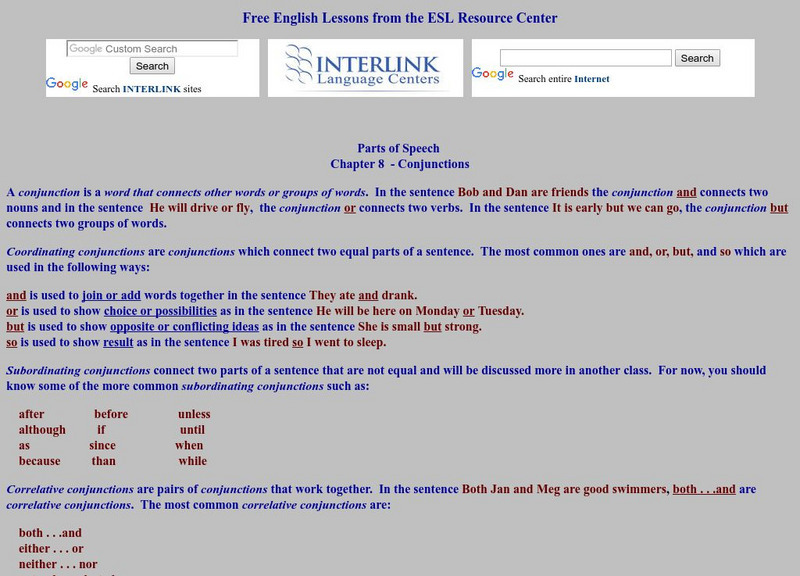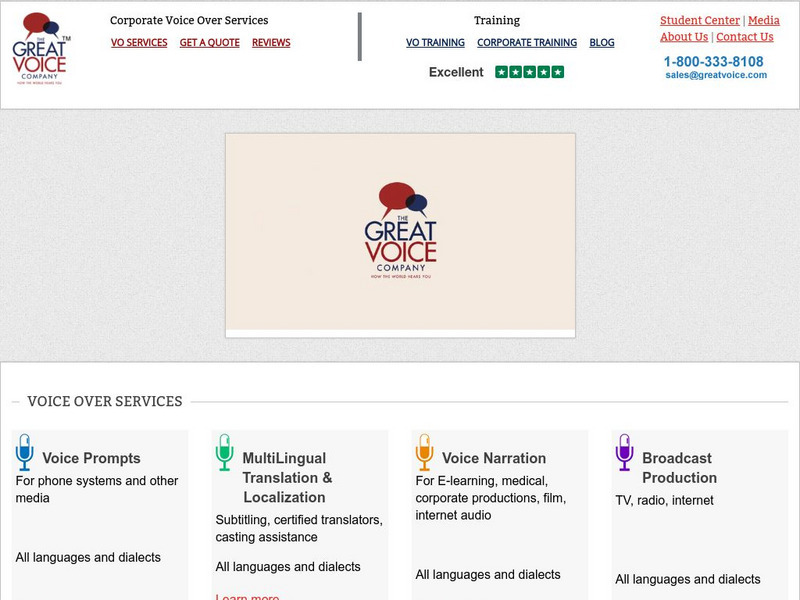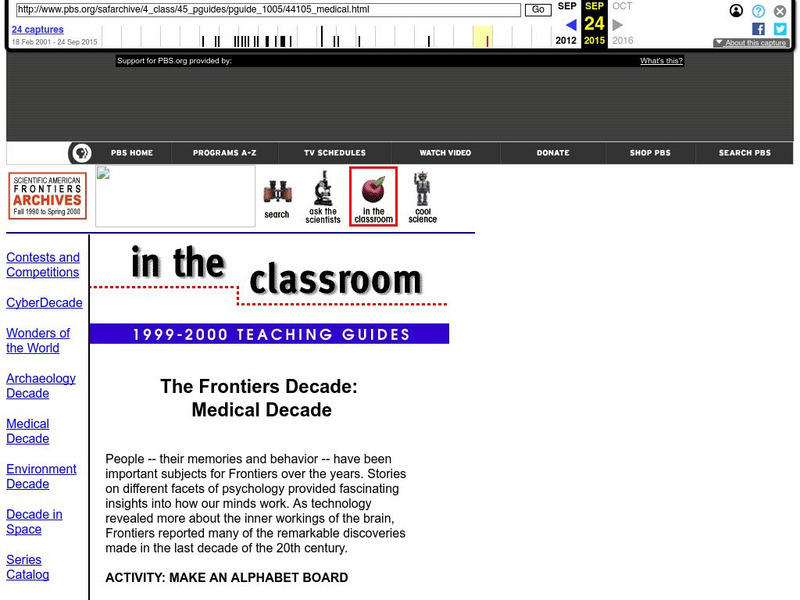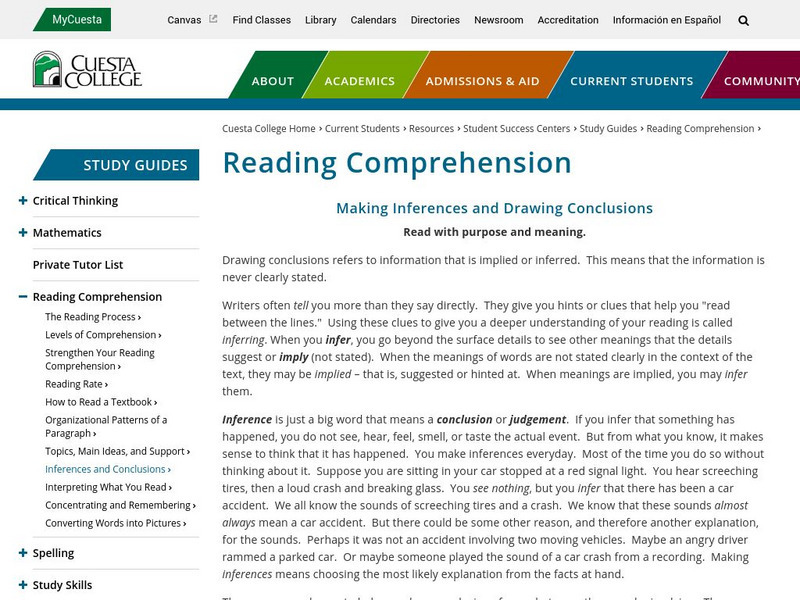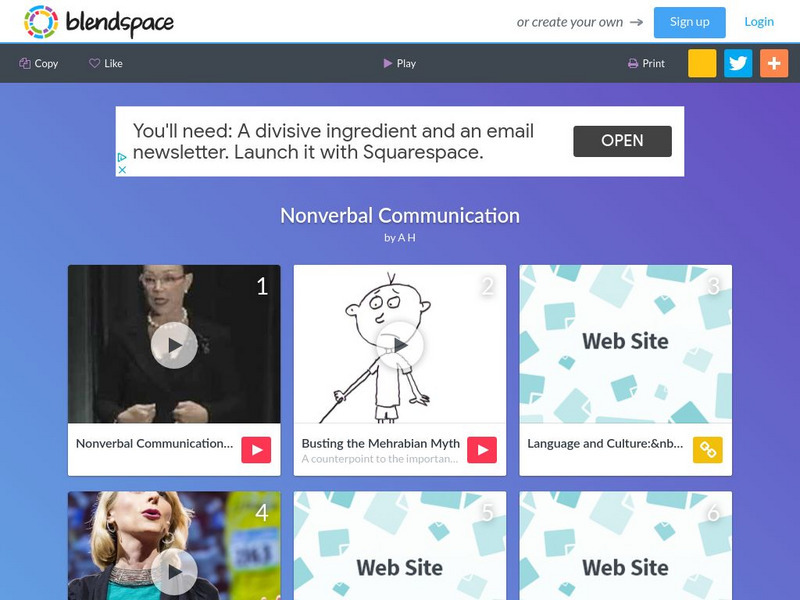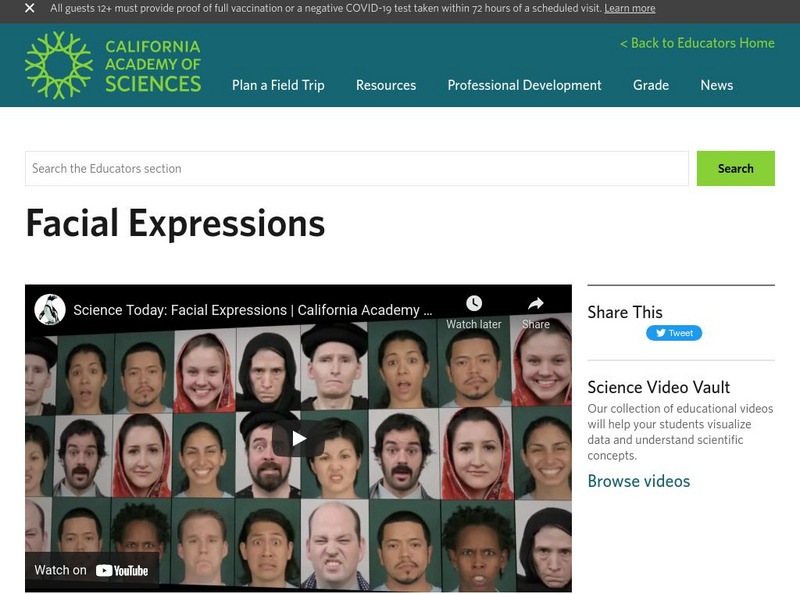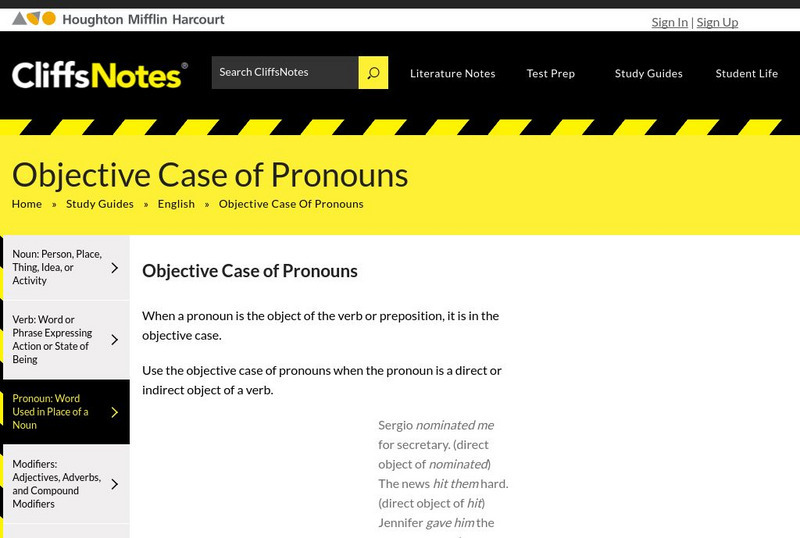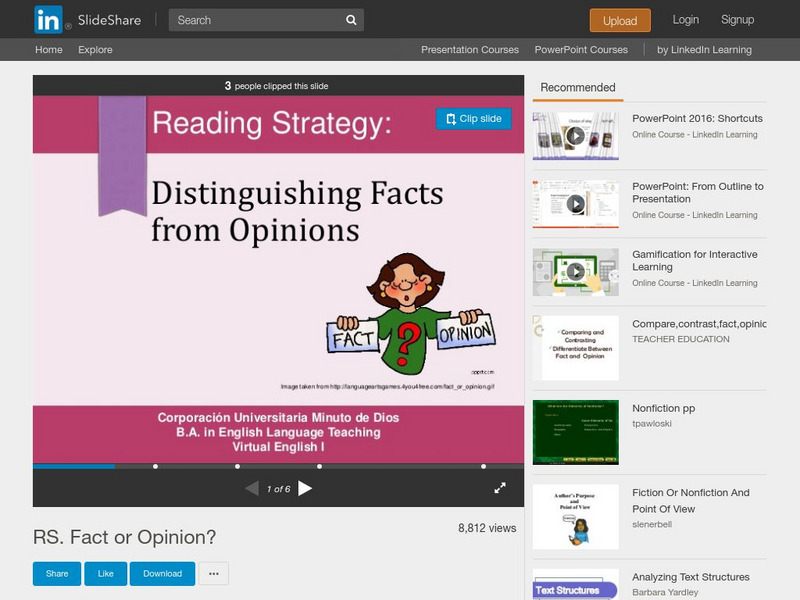InterLink Language Centers
Interlink: Parts of Speech: Conjunctions
This site is designed for English-as-a-Second-Language students and offers a description of conjunctions and their function in sentences.
Other
Jewish World Review: Stating the Obvious
Is empathic listening so obvious as to be moronic? Does it work? Here's a dissenting viewpoint of some of the more popular listening, communication, and interpersonal relationship theories.
Other
Writing Persuasion
This site has a simple set of guidelines to use when writing a persuasive essay.
Other
Pstcc: Four Principles of Interpersonal Communication
Discusses four inevitable components of interpersonal communication. These principles occur in real interpersonal interaction and are basic to communication.
Other
Fact and Opinion Quiz
A short interactive quiz on the ability to separate fact from opinion. Complete with answers and scores.
Other
Great voice.com
Berkley Productions at GreatVoice.com helps train voice professionals. From this page you can link to free subscription forms to two ezines. Under each form are links to sample articles, several of which pertain to tone of voice.
University of Pennsylvania
U Penn Library: Dreiser's Critical Reputation
A scholarly paper on Theodore Dreiser's "Sister Carrie" and the problem of using words to communicate as opposed to tone and other non-verbal means.
Other
Baby Center, Inc.: Babies and Tone of Voice
Baby Center, Inc. offers a quick question and answer about whether babies can understand tone of voice.
PBS
Pbs Teachers: Scientific American: The Frontiers Decade: Medical Decade
Explore the challenges of communicating without speaking or moving by creating a communications board from plastic alphabet letters. Explore speech synthesis files for people with communication disabilities.
Other
Cuesta College: Reading Comprehension Guide: Inferences and Conclusions
Explanations and examples of inferences and conclusions in reading and in understanding context clues to define unknown vocabulary.
University of South Florida
Fcat Express: Cause and Effect Worksheet [Pdf]
This Cause and Effect graphic organizer helps students organize information from a text they are reading.
Other
Wghill.com: Body Language and Non Verbal Communications
This site contains links about body language and non verbal communication skills. The links are about making good body language and non verbal communication skills such as eye contact and smiling.
TES Global
Blendspace: Nonverbal Communication
In this TES Blendspace, students will have access to nine resources that will help them learn about nonverbal communication.
California Academy of Sciences
California Academy of Sciences: Facial Expressions
Are facial expressions learned or innate? [2:58]
TES Global
Blendspace: Parts of Speech Review and Quiz
A seventeen-part learning module including links images, videos, texts, and quizzes on the eight parts of speech.
Houghton Mifflin Harcourt
Houghton Mifflin Harcourt: Cliffs Notes: Objective Case Pronouns
This resource page defines, describes, and gives examples of pronouns as objects of verbs, prepositions or compound objects.
ClassFlow
Class Flow: Questions and Statements
[Free Registration/Login Required] Students will identify questions and statements (without the punctuation cue). They will also practice changing a question into a statement.
Intel Corporation
Showing Evidence Tool: Analyzing and Evaluating Information
If you're looking for a way to engage students in analyzing and evaluating evidence, rather than simply piling up information, this tool may be a boon. Students can use it to construct an argument, rate the quality of resources, and...
Tom Richey
Slide Share: Facts and Opinions
This slideshow focuses on facts and opinions; it provides definitions, examples, and articles for practice.
Other
Bradley C Vs: Interview Body Language: Techniques
The site outlines how to control your body during an interview.
ClassFlow
Class Flow: Reading Comprehension: Context Clues and Inferences
[Free Registration/Login Required] This reading comprehension flipchart uses Activote and a puzzle to review context clues and inferences. It is intended to review for the FCAT or other state assessment exams.
ClassFlow
Class Flow: Conditionals
[Free Registration/Login Required] This flipchart teaches about conditionals (if, then, might, could, would) and their uses in deduction, speculation, and supposition. Students are asked to construct sentences that express possibilities,...
ClassFlow
Class Flow: Fact and Opinion
[Free Registration/Login Required] Designed for grade 6, this flipchart covers the differences between fact and opinion. Students will analyze statements to determine if they are a fact or if they are an opinion.
ClassFlow
Class Flow: Fact or Opinion
[Free Registration/Login Required] This flipchart reviews the definitions of fact and opinion and gives the students opportunities to sort and identify fact and opinion statements.


